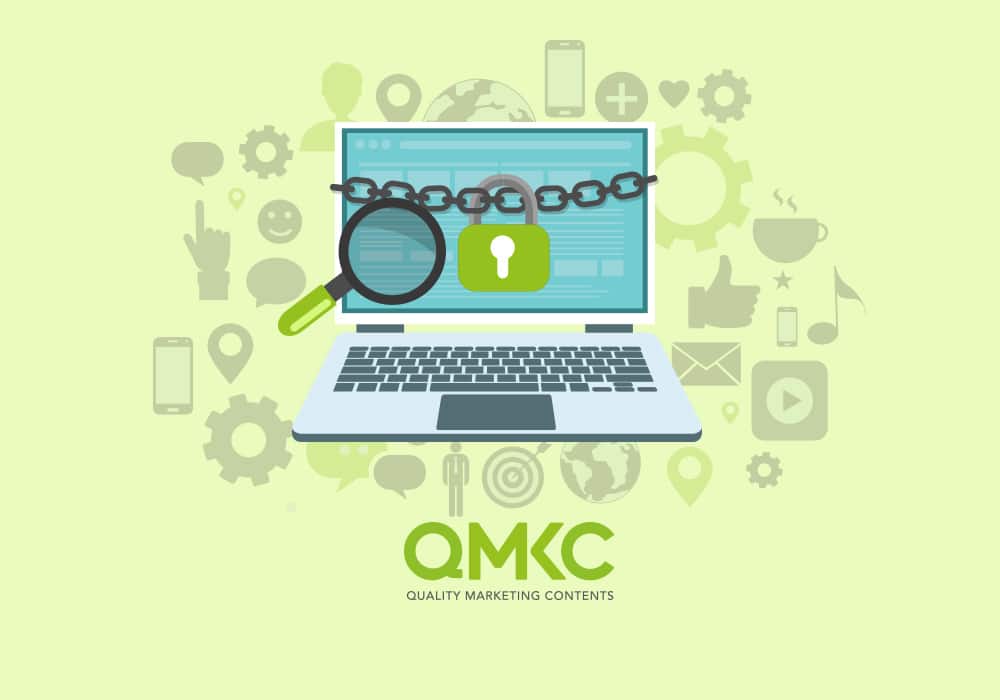
10 May Las empresas deben adaptarse a la nueva Ley de Protección de Datos
[English Below]
El marketing directo se ha convertido en una de las estrategias más populares para que las empresas se comuniquen con sus clientes, más específicamente, el correo electrónico se ha convertido en una de las principales plataformas que utilizan las empresas para enviar comunicaciones de marketing a sus clientes. Pero el 25 de mayo la Legislación General de Protección de Datos (GDPR) va a cambiar en la UE para garantizar que las empresas no abusen de los datos que han recopilado de sus clientes. El valor de los datos personales ha crecido en 2017, The Economist calificó los datos personales como el recurso más valioso del mundo, dijeron que incluso ocupaban un lugar más alto que el petróleo, esto se debe a la cantidad de información que las empresas pueden recibir y cómo gran impacto que tiene en sus clientes. Dicho esto, está claro que hay una gran demanda de este tipo de información, esto también significa que es susceptible de robo. Por lo tanto, la seguridad debe establecerse para proteger este tipo de información.
¿QUIÉNES ESTÁN PREOCUPADOS?
Esto no es solo una preocupación legal, un estudio ha demostrado que el 92% de la población on line dijo que la seguridad y privacidad de los datos era una de sus preocupaciones, mientras que el 57% de los clientes no cree que las marcas usen sus datos de manera responsable. Los datos personales no solo se trata de obtener datos de personas sino también de cómo las empresas almacenan los datos que han recopilado. Cuando un cliente opta por las notificaciones por correo electrónico, las empresas deben eliminar esa información. Hoy en día no es siempre así, en 2016 el 90% de las empresas dijeron que era demasiado complicado eliminar datos de una sola persona, y el 60% de esas empresas no tenían la tecnología para ayudarlos a hacerlo. Estos números son muy sorprendentes, creo que esto fue un gran factor para que las leyes estén cambiando.
¿Cómo va a cambiar la GDPR las formas en que las empresas pueden adquirir datos personales? Hay muchos aspectos legales para el GDPR dependiendo de si está hablando de marketing B2B o marketing directo, etc. Estas regulaciones estandarizan muchos tipos diferentes de legislaciones de privacidad, pero la regla de oro a tener en cuenta es que requiere el consentimiento de la segunda parte. Las casillas premarcadas ya no valdrán, ¡tiene que ser una elección deliberada!
PERMISO DE DATOS
¿Cómo se verá afectado el marketing por las nuevas reglamentaciones? En realidad, solo hay tres departamentos que las empresas deben tener en mente: permisos de datos, acceso a datos y enfoque de datos. Estas tres categorías de adquisición de datos personales también serán beneficiosas para las empresas y mantendrán seguros los datos de los clientes. ¿Qué significa que las empresas deban hacer las cosas de manera diferente? simplemente para obtener datos personales. Quienes sean sus clientes potenciales o sus socios necesitan decir físicamente que desean recibir la información que están ofreciendo.
ACCESO A LOS DATOS
El siguiente cambio importante es que si alguien quiere dejar de recibir lo que está enviando su empresa, debe poder optar por no recibir lo que está enviando. Esto es abordar el derecho de acceso, el objetivo es darles a las personas el control sobre la información que se les está quitando así como el derecho a decir cuándo no quieren que lo usen más. Es su trabajo asegurarse de que los clientes puedan acceder fácilmente a sus propios datos y eliminar el consentimiento de su uso de esos datos.
ENFOQUE DE DATOS
El enfoque en los datos es el último apartado del GDPR que los especialistas en marketing seguirán. Este es un requisito legal que establece que una empresa tiene que justificar por qué están recopilando la información.
Otra información que se haya recopilado previamente sin este consentimiento no podrá ser usada. El incumplimiento de estos nuevos cambios terminará siendo costoso para la empresa.
Todo esto puede sonar como un cambio negativo para los especialistas en marketing, pero en realidad proporcionará a las empresas información aún más definida sobre sus clientes. El hecho de que los clientes tengan que decir físicamente que desean recibir más información permitirá a las empresas saber qué temas interesan más a ciertos clientes que a otros. A su vez, las personas recibirán información y comunicaciones de marketing que desean y las empresas sabrán con mayor precisión quién quiere ver qué, dándoles la oportunidad de realizar una campaña de marketing más efectiva. Lo mejor de los dos ámbitos se tienen en cuenta. No obstante, se mantienen los datos personales más seguros y organizados de manera que tengan más seguridad para ambas partes.
New Data Protection Regulations Force Companies to Make a Change
Direct marketing has become one of the most popular strategies for companies to communicate with their customers, more specifically email has become one of the main platforms that companies use to send marketing communications to their customers. But on the 25th of May General Data Protection Legislation (GDPR) are going to change in the EU to further ensure that companies are not abusing the data they have collected from their customers. The value of personal data is growing in 2017, the Economist called personal data the most valuable resource in the world, they said it even ranked higher than oil, this is because of the amount of information that companies are able to receive as well as how big of an impact it has on their customers. This being said it is clear that there is a high demand for this kind of information, this also means that it is susceptible to theft. Therefor security must be put in place in order to protect this type of information.
WHO IS CONCERNED?
This is not justa legal concern, a study has shown that 92% of the online population said that data security and privacy as a concern, while 57% of customers don’t believe that brands will use their data responsibly. personal data is not just about getting data from people it’s also how companies are storing the data that they have collected. When a customer opts out of email notifications, companies should remove that data. This is not always the case today, in 2016 90% of companies said that it was too complicated to delete a single persons data, and 60% of those companies didn’t have the technology to help them do so. These numbers are very astonishing, I believe this was a large driver as to why the laws are changing. How is the GDPR going to change the ways that companies are allowed to acquire personal data? There are many legal aspects to the GDPR depending if your are talking B2B marketing or direct marketing, etc. these regulations standardizes many different types of privacy legislations, but the rule of thumb to keep in mind is that you require consent from the second party. Pre-ticked boxes won’t fly anymore, it needs to be a deliberate choice!
DATA PERMISSION
How will marketing be affected by the new regulations? There are really only three departments that companies need to keep in the forefront of their minds, data permission, data access, and data focus. These three categories of acquiring personal data are going to also be beneficial to companies as well keep customers data safe. What does it mean that companies need to do differently, well to put it simply in order obtain personal data whoever it may be leads, customers, or partners need to physically say that they want to receive the information that you are offering.
DATA ACCESS
The next important change is that if someone want to stop receiving what your company is sending they need to be able to opt out of receiving whatever it is that you are sending. This is addressing the right to access, the goal is to give people control over the information that is being taken from them as well as the right to say when they dont want you to use it anymore. It is your job to make sure that customers are easily able to access their own data and remove consent of your use of that data.
DATA FOCUS
Data focus is the last department of the GDPR that marketers are going to watch after. This is a legal requirement that states a company has to justify why they are taking the information that they are collecting. Other information that you have previously collected that was not necessary but positive side info wont pass the cut anymore. Simply put you can still take all information that you need, but you just need to be able to back why you need this info. Failing to comply with these new changes will end up being costly for the company.
https://www.superoffice.com/blog/gdpr-marketing/
This may all sound like a negative change for marketers, but actually it will provide companies with even more definitive information about their customers. The fact that the customers have to physically say that they want to receive more information will allow companies to know which topics interest certain customers more then others. In turn people will receive info and marketing communications that they want to receive and companies will know more accurately who wants to see what, giving them the chance to form a more effective marketing campaign. The best of both worlds kept in mind while keeping personal data more secure as well as organized in a fashion that makes more sense for both parties.



